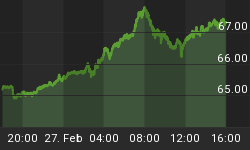In 2009 and 2010 "Walking Away" was the rage. (skip the adds and scroll down to my list of articles).
Back then, I frequently cautioned Before Walking Away Consult An Attorney, advice repeated in nearly every reference to the practice.
Walking away without declaring bankruptcy, especially with a recourse mortgage was always a dangerous practice.
Moreover, law is complicated because rules vary from state to state, and non-recourse loans often became recourse loans if refinanced.
Post-Foreclosure Hell
Unfortunately, Post-Foreclosure Hell is the sorry result for those who did not consult an attorney.
Many thousands of Americans who lost their homes in the housing bust, but have since begun to rebuild their finances, are suddenly facing a new foreclosure nightmare: debt collectors are chasing them down for the money they still owe by freezing their bank accounts, garnishing their wages and seizing their assets.
By now, banks have usually sold the houses. But the proceeds of those sales were often not enough to cover the amount of the loan, plus penalties, legal bills and fees. The two big government-controlled housing finance companies, Fannie Mae and Freddie Mac, as well as other mortgage players, are increasingly pressing borrowers to pay whatever they still owe on mortgages they defaulted on years ago.
Using a legal tool known as a "deficiency judgment," lenders can ensure that borrowers are haunted by these zombie-like debts for years, and sometimes decades, to come.
The most aggressive among the debt pursuers is Fannie Mae. Of the 595,128 foreclosures Fannie Mae was involved in - either through owning or guaranteeing the loans - from January 2010 through June 2012, it referred 293,134 to debt collectors for possible pursuit of deficiency judgments, according to a 2013 report by the Inspector General for the agency's regulator, the Federal Housing Finance Agency.
It is unclear how many of the loans that get sent to debt collectors actually get deficiency judgments, but the IG urged the FHFA to direct Fannie Mae, along with Freddie Mac, to pursue more of them from the people who could repay them.
The article notes that Florida is one of the more aggressive states in pursuing "deficiency judgments". For example ...
Bank teller Danell Huthsing broke up with her boyfriend and moved out of the concrete bungalow they shared in Jacksonville, Florida. Her name was on the mortgage even after she moved out, and when her boyfriend defaulted on the loan, her name was on the foreclosure papers, too.
On July 5, a process server showed up on her doorstep with a lawsuit demanding $91,000 for the portion of her mortgage that was still unpaid after the home was foreclosed and sold. If she loses, the debt collector that filed the suit can freeze her bank account, garnish up to 25 percent of her wages, and seize her paid-off 2005 Honda Accord.
I specifically spotlighted Florida in Before Walking Away Consult An Attorney.
But it's not just Florida.
Reuters reports "Once financial institutions secure a judgment, they can sometimes have years to collect on the claim. In Maryland, for example, they have as long as 36 years to chase people down for the debt. Financial institutions can charge post-judgment interest of an estimated 4.75 percent a year on the remaining balance until the statute of limitation runs out, which can drive people deeper into debt."
Hundreds of thousands of people will soon be in extremely hot water because they failed to seek advice from an attorney, advice which may have cost only a couple hundred dollars in 2009.















